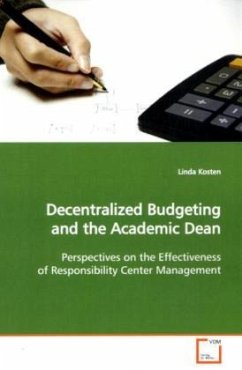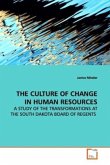Responsibility center management (RCM) is a
university budget management model that
decentralizes revenue and expense to the unit level.
Academic deans play a key role as unit leaders
within this model. The central issue explored by
this study was the lack of an evidence-based
understanding of RCM and how effective this budget
model is from the perspective of academic deans. A
survey instrument was designed and administered to
deans at 27 doctoral universities using RCM.
Positive outcome scales investigated overall
effectiveness, accountability and
entrepreneurialism, empowerment, and fiscal
awareness. Negative outcome scales investigated
increased competition among colleges, a negative
impact on interdisciplinarity, fiscal priorities
superseding academic considerations, and college
priorities overriding university priorities. Data
analysis examined results using institutional,
college, and individual demographic characteristics.
Implications and recommendations for university
administrators are provided, as well as reflections
on the impact of corporate models like RCM on the
culture of higher education.
university budget management model that
decentralizes revenue and expense to the unit level.
Academic deans play a key role as unit leaders
within this model. The central issue explored by
this study was the lack of an evidence-based
understanding of RCM and how effective this budget
model is from the perspective of academic deans. A
survey instrument was designed and administered to
deans at 27 doctoral universities using RCM.
Positive outcome scales investigated overall
effectiveness, accountability and
entrepreneurialism, empowerment, and fiscal
awareness. Negative outcome scales investigated
increased competition among colleges, a negative
impact on interdisciplinarity, fiscal priorities
superseding academic considerations, and college
priorities overriding university priorities. Data
analysis examined results using institutional,
college, and individual demographic characteristics.
Implications and recommendations for university
administrators are provided, as well as reflections
on the impact of corporate models like RCM on the
culture of higher education.








